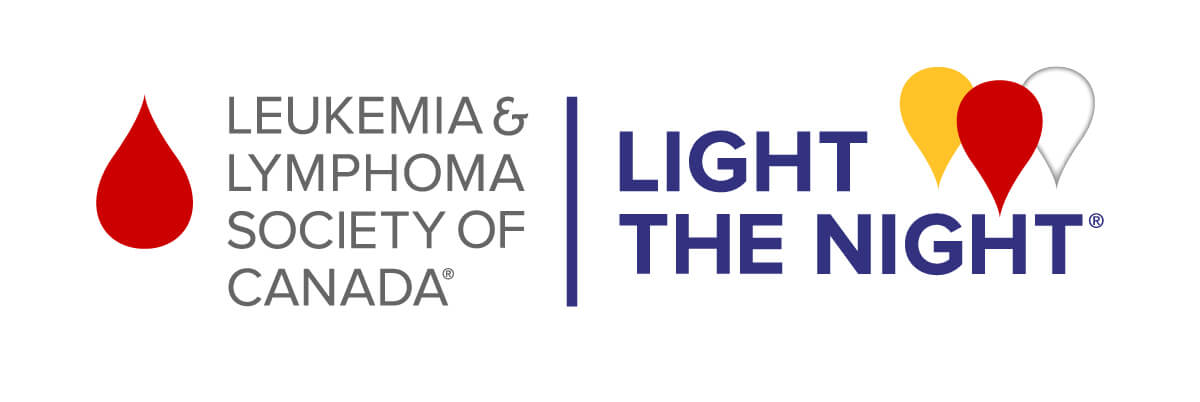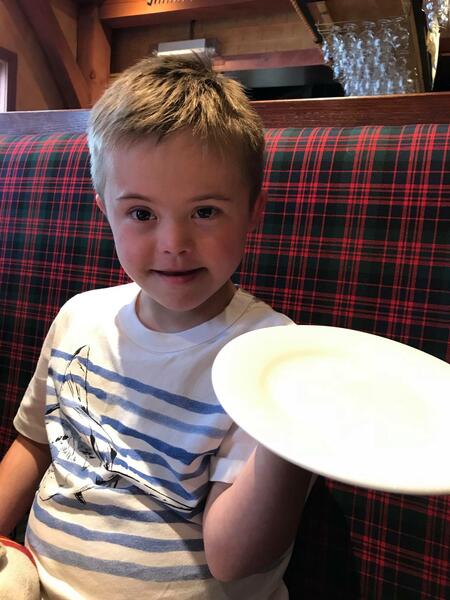HALIFAX HONOURED HERO
You wouldn’t know it to look at him, but Gregor has endured and overcome a multitude of health challenges over the course of his short life.
Born with Down syndrome, Gregor had some preliminary congenital heart issues. Just as his cardiac anomalies began to stabilize, Gregor was diagnosed with juvenile diabetes when he was only 8 months old. Only a few months later, Gregor went into renal failure and was diagnosed with Tubolointerstitial Nephritis of the kidneys. Gregor spent more of his first year of life in hospital than at home.
Gregor’s proven resiliency was necessary, as his greatest fight was still to come. At the age of 18 months, Gregor was diagnosed with High Risk Acute Lymphoblastic Leukemia. Leukemia was always in the back of my mind whenever Gregor got sick because the Down syndrome population is at a higher risk for developing leukemia.
However, leukemia was not on my mind on October 10, 2010 when we brought Gregor into the IWK Emergency Department because his arm was sore and he had a fever. It was just a precautionary measure because of his history. It wasn't supposed to be because his blood was full of cancer.
I sat in stunned silence as the oncologist described the three-and-a-half year chemotherapy treatment protocol ahead. But first, they had to get him into remission. The hallmark of High Risk meant that it would be harder to achieve remission and that treatment would be more aggressive. Having Down syndrome, kidney disease and juvenile diabetes meant that his treatment would be much more challenging to navigate, leaving him more vulnerable to infection, complications and toxicity from the chemotherapy.
Gregor was sick and weak from all the chemo, but he had endured and mercifully, remission was achieved. Gregor’s primary oncologist (Dr. Berman) was at his bedside discussing next steps and asked a sleeping Gregor, ravaged by chemo for a celebratory “pound out”. Like a phoenix rising from the ashes, eyes still closed, Gregor raised his little arm from the bed and put out his fist to give Dr. Berman a pound out.
This victory was only the beginning, but it was the most essential step for survival. Gregor spent the first year of treatment as an inpatient in hospital, primarily in isolation, because the chemotherapy left him immunocompromised. Despite these efforts, Gregor was routinely febrile neutropenic. The most terrifying complication and most difficult to watch Gregor endure occurred during the induction phase of his treatment. He developed typhlitis, a rare gastrointestinal complication of neutropenia with a high mortality rate. Gregor was given a 50/50 chance of survival. It was up to Gregor’s immune system, to replenish and start fighting back before it was too late. Fortunately, Gregor is nothing if not a fighter.
After the first and most aggressive year of treatment, Gregor no longer had the strength to sit upright, physically regressing to early infancy and becoming confined to a wheelchair. I remember Gregor’s nurse promising me that someday he would walk onto the oncology unit himself to say hello to everyone, that someday he would go to school, that someday our lives would be normal. Looking at him lying in his crib, bald, swollen, weak and sickly, it was difficult to imagine how that would be possible.
As months turned into years and Gregor spent less and less time as an inpatient in the hospital, I did my best to see to it that cancer did not stop Gregor from living. I used to joke that giving chemo to Gregor was like green eggs and ham, you can have it anywhere. Gregor had chemo at the beach, at the playground, on airplanes, in cars, at parades, camping, even at his sister’s soccer and basketball games. Cancer means you are always looking over your shoulder and I tried not to take time for granted.
Gregor eventually took his first independent steps at the age of seven. Today he is a happy, engaging, social, charming, curious and active 11 year old boy in the fifth grade. Gregor plays baseball and soccer and participates in Special Olympics and the S.M.I.L.E. program at Acadia University. He loves swimming, dancing, reading and spending time with his own hero, his sister Brynn. It was initially hard to imagine that Gregor could ever be healthy, it is now equally difficult to imagine him ever being so sick.
Ten years ago, we participated in the very first Light the Night in Atlantic Canada. Gregor had just finished his first grueling year of treatment. It was such a novelty to be out of the hospital in the fresh air. Included along the Light the Night route is the local children’s hospital and that night, as we walked by, I looked up to the oncology floor where I had just spent the last year with Gregor. I saw all the children lined up in the window, waving at us, cheering us on. That image has served as an ongoing reminder to me that even though Gregor survived, the fight is only beginning for other children. Light the Night is about raising awareness and morale, serving as a reminder to the children in the window that we are fighting alongside them. Witnessing the growth of Light the Night over the past decade has been truly inspirational and I am so proud of my son for being chosen as an Honored Hero.
Melanie Strömberg – Gregor’s Mom

